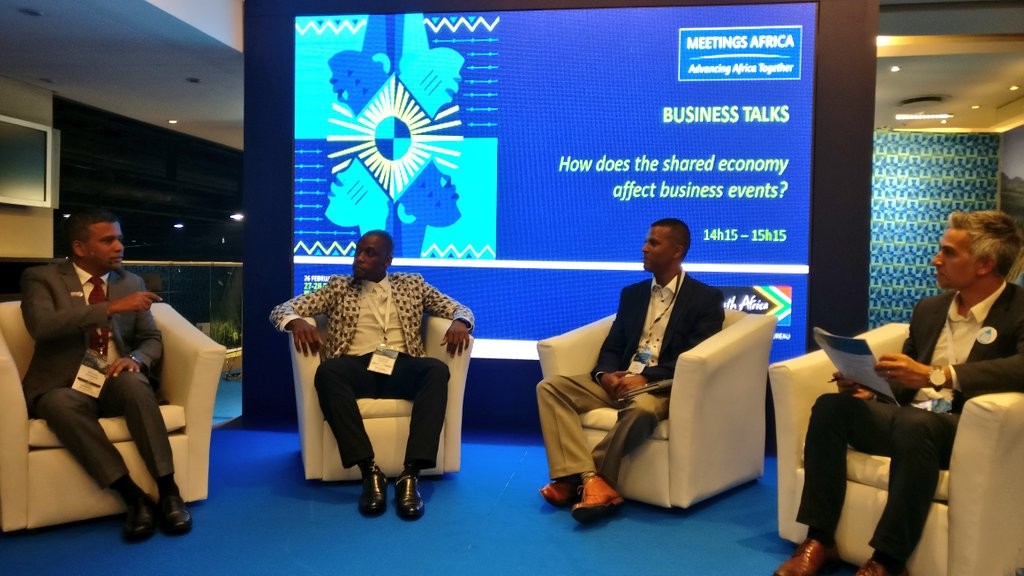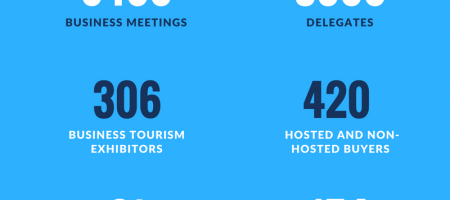Beyond the obvious examples of Airbnb and Uber, shared economy is a truly disruptive business phenomenon that is revolutionizing many industries and is on the verge of making a dent in the MICE ecosystem. Meetings Africa 2018 at Sandton Convention Centre, which is the most important business tourism event in the African content is riding on this theme of shared economies to stimulate economic growth across the continent.
Just from a numbers standpoint, the business events contribute R115 billion to the SA economy every year. While the city of Cape Town has been in the global media for its water crisis, the city of Johannesburg witnessed a 13% YoY growth in tourism sector.
With this as a backdrop, what is the future of Shared Economies in the African context? A panel moderated by Rashid Toefy, deputy director-general of economic developments of the Western Cape government and featuring Senthil Gopinath, ICCA Regional Director for Middle East, Raymond Ledwaba, CEO – IT Think Smart Solutions and Byron Moorgas from Always Innovative Solutions discussed the opportunities.

Panel on Shared Economies at Meetings Africa 2018: Image Credit Visit Gauteng on Twitter. From L to R: Senthil Gopinath, ICCA Regional Director for Middle East, Raymond Ledwaba, CEO – IT Think Smart Solutions, Byron Moorgas from Always Innovative Solutions and Rashid Toefy, deputy director-general of economic developments of the Western Cape government
Knowledge sharing in the meetings industry is a driving force
According to Senthil, “You see new entrants in the market, brands and products, competition and cooperation are being seen more. It makes the industry stronger, and longer lasting. Knowledge sharing developed day by day and the economic impact becomes stronger. It’s a driving force in the meetings industry.”
The idea is to share each other’s strengths, USPs and when we do that we make it happen as one continent.
Data sharing the TomTom Way
TomTom, the company which Brian represents makes data from their mapping platforms to a larger group. While doing that, it provides assistance to consumers, governments and lastly the consumers to travel in a better way. The real challenge of data sharing is across borders, as many countries have stronger rules and laws.
In simple sense, shared economy means renting out something which the owners are not using. It’s a pIt’s a classical Airbnb model where owners rent out
Alternative Meeting Spaces, the Airbnb Model
In what is a classical application of the Airbnb model, the meetings industry is also witnessing the use of non-traditional spaces for conferences and business gathering. Some of these include, lecture halls, examination centers and even parking lots which helps some of these properties generate extra income.
The way forward
According to Raymond, “The cut-paste approach or one size fits all doesn’t work in the meetings industry”. In other words, if you are expecting one solution to work in multiple markets, that won’t necessarily be the case. The real approach is to localize solutions and not leave people out of it.
As the shared economies theme has been embraced by Meetings Africa event, you can expect more work and innovation to happen in the shared economies space in the region.



















